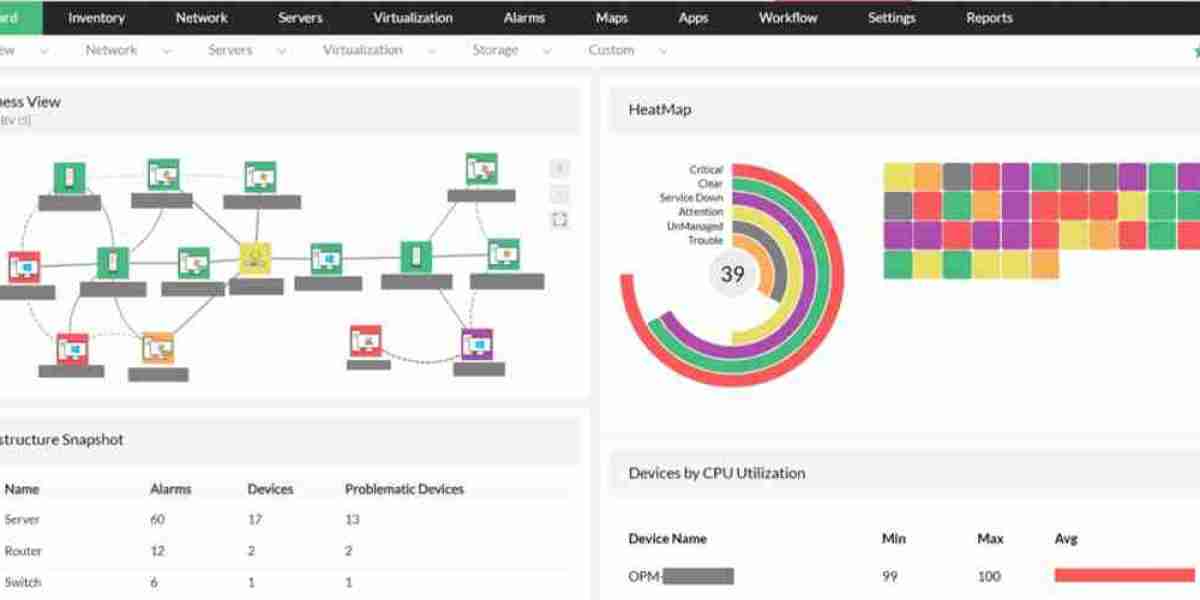The AI in Healthcare Market is increasingly revolutionizing the field of surgery by integrating automation and robotic assistance. The advancements in AI technologies have paved the way for the development of highly sophisticated robotic surgical systems that enhance precision, reduce human error, and improve patient outcomes. This blog explores the role of AI in automating surgery and how robotic assistance is transforming surgical practices.
AI-Driven Robotics: Enhancing Precision in Surgery
AI-driven robotic systems are significantly improving the precision of surgical procedures. By using machine learning algorithms and real-time data, these robots can assist surgeons in performing complex operations with greater accuracy and less risk. AI algorithms process vast amounts of patient data, including imaging, genetic information, and medical history, to provide real-time insights that guide surgical decisions.
Robotic systems like the da Vinci Surgical System allow surgeons to perform minimally invasive surgeries with greater control and precision than traditional methods. These systems use AI to refine the movements of robotic arms, enabling fine-tuned operations that reduce the chances of complications, accelerate recovery times, and minimize scarring. Surgeons are able to perform delicate procedures that would otherwise be difficult or impossible to achieve with human hands alone.
AI in Minimally Invasive Surgery: Reducing Recovery Times
One of the most significant benefits of AI-powered robotic surgery is its ability to facilitate minimally invasive procedures. Traditional surgeries often require large incisions, leading to longer recovery times, higher risk of infection, and increased hospital stays. In contrast, robotic systems can perform surgeries with small incisions, resulting in less trauma to the body.
AI technologies enhance the precision of robotic systems, enabling them to carry out intricate tasks such as suturing, tissue removal, and organ manipulation with great accuracy. These advancements have revolutionized procedures such as laparoscopic surgeries, where AI-driven robotic systems assist in reducing human error, minimizing complications, and speeding up recovery. The reduction in recovery times translates to shorter hospital stays and lower healthcare costs for patients and healthcare systems alike.
Automation and Real-Time Data: Improving Surgical Decision-Making
AI in surgery not only enhances the precision of the procedures themselves but also plays a crucial role in improving decision-making before and during operations. By analyzing patient data, medical images, and even predictive models, AI can assist surgeons in selecting the most appropriate course of action for each individual case.
For instance, AI-powered diagnostic tools can process medical imaging, such as MRI or CT scans, with a level of detail that human doctors might miss. This helps in identifying potential issues that could affect the success of the surgery. During the operation, AI can provide real-time feedback on vital signs, tissue health, and other parameters, allowing the surgical team to make informed decisions on-the-spot.
The Impact of AI on Robotic-Assisted Surgery in Specialized Fields
In specialized fields such as neurosurgery, orthopedics, and cardiovascular surgery, robotic assistance powered by AI is becoming a game-changer. In neurosurgery, for example, precision is critical, as even the smallest error can lead to severe consequences. AI-enabled robotic systems can help surgeons navigate through the brain with unprecedented accuracy, minimizing damage to healthy tissue and improving patient outcomes.
Similarly, in orthopedic surgery, robotic systems assist in performing joint replacements with high precision, ensuring better alignment and faster recovery times. In cardiovascular surgeries, AI-driven robots can assist in navigating complex procedures, such as bypass surgeries, ensuring optimal results and reducing complications.
Ethical Considerations and Challenges in Robotic Surgery
While the integration of AI and robotic assistance into surgery presents numerous advantages, there are also ethical considerations and challenges to address. One major concern is the degree of reliance on AI systems in critical decision-making. Although AI can provide valuable insights and support, the role of human expertise and judgment remains crucial in surgery.
Additionally, the cost of implementing AI-driven robotic systems in healthcare can be a barrier, especially in developing regions. The initial investment in robotic systems and the training required for healthcare providers to use them effectively may be prohibitive for some healthcare institutions. However, as technology advances and becomes more widespread, costs are expected to decrease, making these systems more accessible to hospitals and clinics globally.
The Future of AI in Surgery: Opportunities and Outlook
The AI in Healthcare Market is set to grow rapidly, with the continuous development of more advanced and intuitive robotic systems. The future of AI in surgery holds immense potential for enhancing surgical precision, reducing human error, and improving patient recovery times. As AI technologies evolve, we can expect to see even greater automation in surgical procedures, with robots becoming more autonomous in decision-making and execution.
Moreover, AI in surgery will continue to expand into new areas, such as robotic rehabilitation systems and post-surgical monitoring. The integration of AI and robotics is set to revolutionize not only the way surgeries are performed but also how patients are cared for before and after their procedures.
Conclusion
The AI in Healthcare Market is driving transformative changes in surgical practices through automation and robotic assistance. AI-powered robotic systems are improving the precision, efficiency, and safety of surgeries, while also reducing recovery times and healthcare costs. As AI continues to advance, the role of robotics in surgery will only expand, offering a future where surgical procedures are more personalized, efficient, and accessible. With continued investment and technological advancements, the integration of AI in surgery will play a central role in shaping the future of healthcare.




